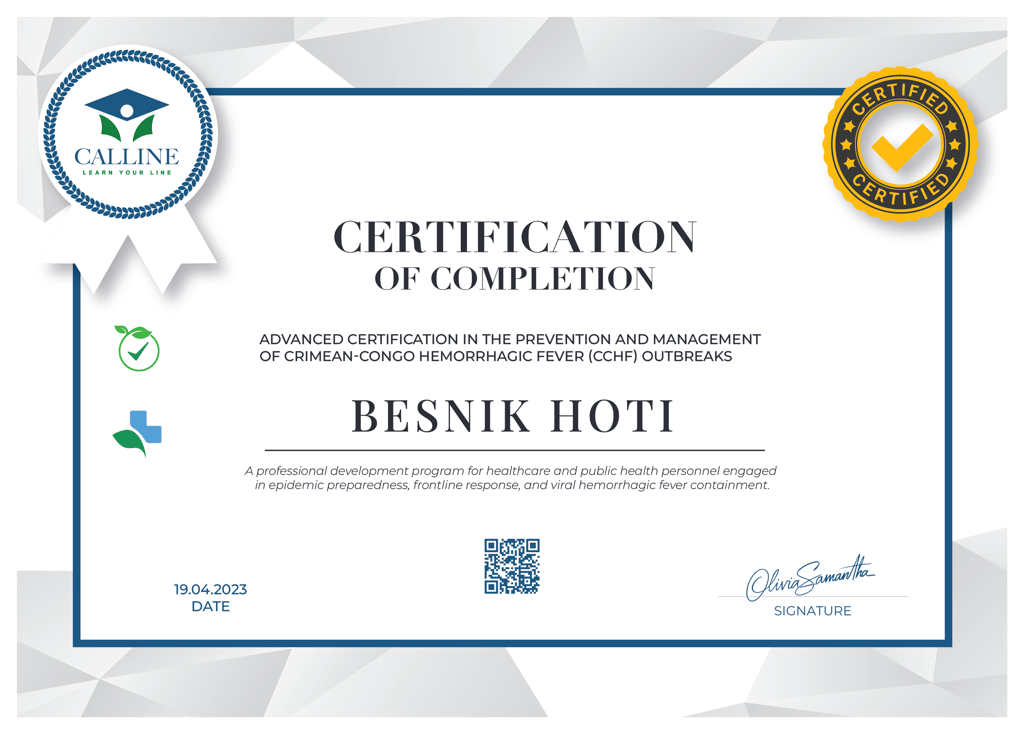Certificate of Completion
This is to certify that
Besnik Hoti
Advanced Certification in the Prevention and Management of Crimean-Congo Hemorrhagic Fever (CCHF) Outbreaks
A professional development program for healthcare and public health personnel engaged in epidemic preparedness, frontline response, and viral hemorrhagic fever containment.
This course equips frontline healthcare professionals with essential knowledge and skills to prevent, detect, and manage outbreaks of Crimean-Congo Hemorrhagic Fever (CCHF). Emphasis is placed on early recognition, infection prevention and control (IPC) measures, outbreak response strategies, and intersectoral coordination, ensuring effective preparedness and action in high-risk settings.
Awarded by:
CALLINE
19.04.2023


Advanced Certification in the Prevention and Management of Crimean-Congo Hemorrhagic Fever (CCHF) Outbreaks
Course Modules
Advanced Certification in the Prevention and Management of Crimean-Congo Hemorrhagic Fever (CCHF) Outbreaks
Introduction to Crimean-Congo Hemorrhagic Fever (CCHF)
Epidemiology, transmission routes, and high-risk areas.Clinical Presentation and Diagnosis of CCHF
Signs, symptoms, diagnostic tools, and case definitions.Epidemiological Surveillance and Outbreak Detection
Early warning systems, reporting protocols, and case investigation.Infection Prevention and Control (IPC) in Healthcare Settings
Standard precautions, PPE usage, isolation, and decontamination.Laboratory Handling and Biosafety for CCHF Samples
Safe collection, transport, and analysis of specimens.Vector Control and Environmental Risk Reduction
Ticks, animal reservoirs, and environmental hygiene strategies.Contact Tracing and Community-Based Surveillance
Identification, monitoring, and community engagement during outbreaks.Outbreak Management and Emergency Response Planning
Coordination, logistics, and multi-sectoral response mechanisms.Risk Communication and Public Health Messaging
Communicating with communities, reducing stigma, and building trust.Case Management and Supportive Care Protocols
Clinical stabilization, supportive treatment, and referral systems.Training of Trainers (ToT) and Capacity Building
Preparing local responders, scaling response through peer training.Final Assessment and Operational Simulation Exercise
Practical review of response scenarios, lessons learned, and certification exam.
98.6%
12
Modules
Proven Success


Certification Validation
© 2020. CALLINE.INFO All rights reserved.


